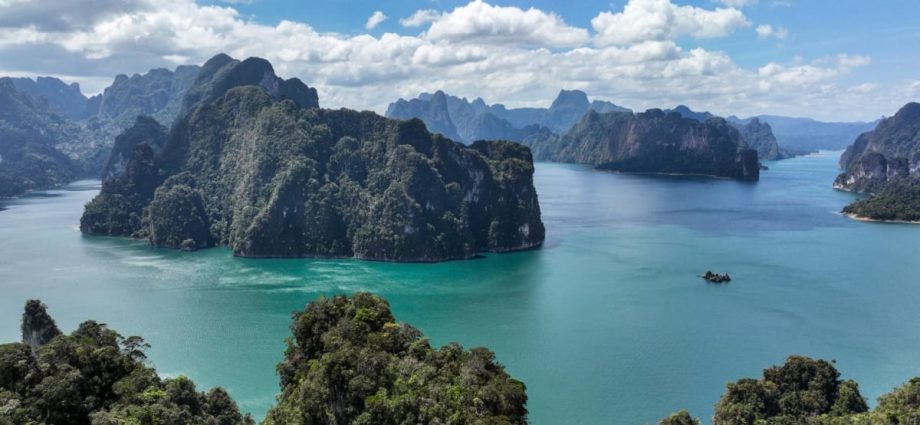
The rangers are also looking for animal food sources, like fruit trees to better understand the wildlife in the area.
The group pauses to examine claw marks on a tall tree. Signs of a bear looking for honey, they conclude. They seem happy about the discovery – a sign that nature is mostly undisturbed in this area.
The coordinates are logged and the group presses on, under the guidance of its captain, Ponchai Yenchai.
He has been doing this for 20 years, but his family has a much longer history in this rainforest.
“Originally, every family here had fathers who were working like poachers. They weren’t actual poachers but rather would search for food,” Ponchai said.
“We didn’t have any laws or a national park at the time. So, it’s normal that they would go and find wildlife. They didn’t sell them but they did it for survival.
“I followed my father from when I was a child. We looked for things here and there. So, I learned which spots had a lot of animals, and which spots had resources, such as fruit trees or seasonal plants that we can eat. It was knowledge passed from generation to generation,” he recounted.

